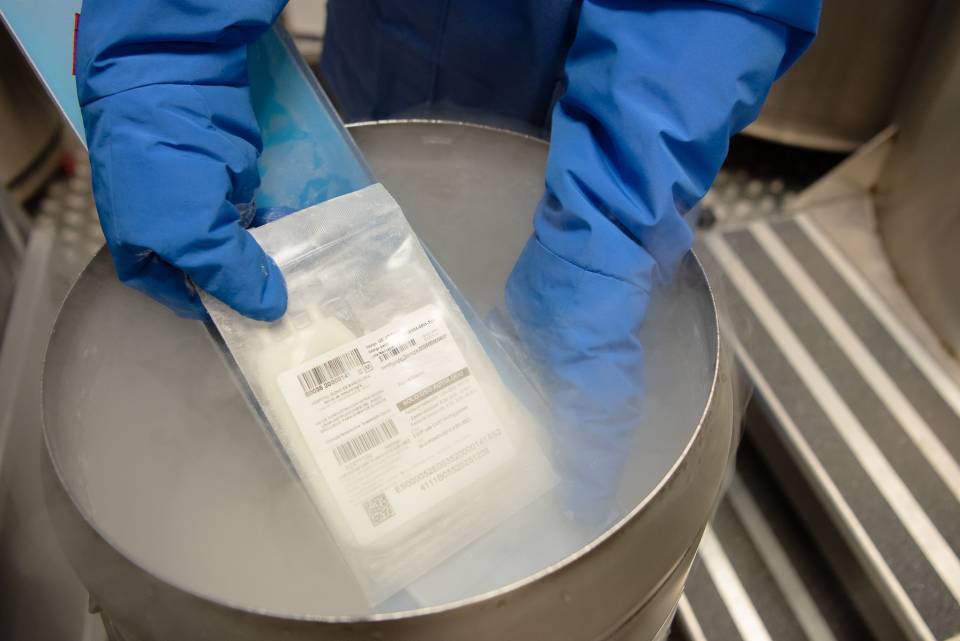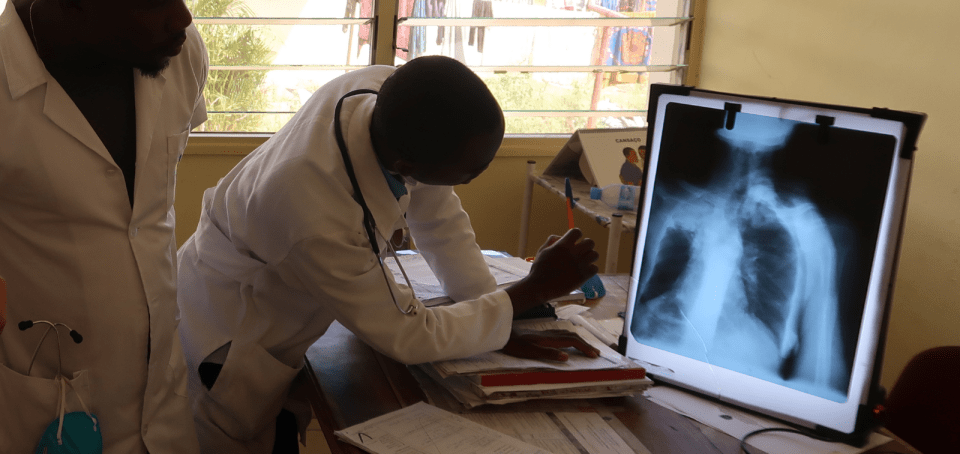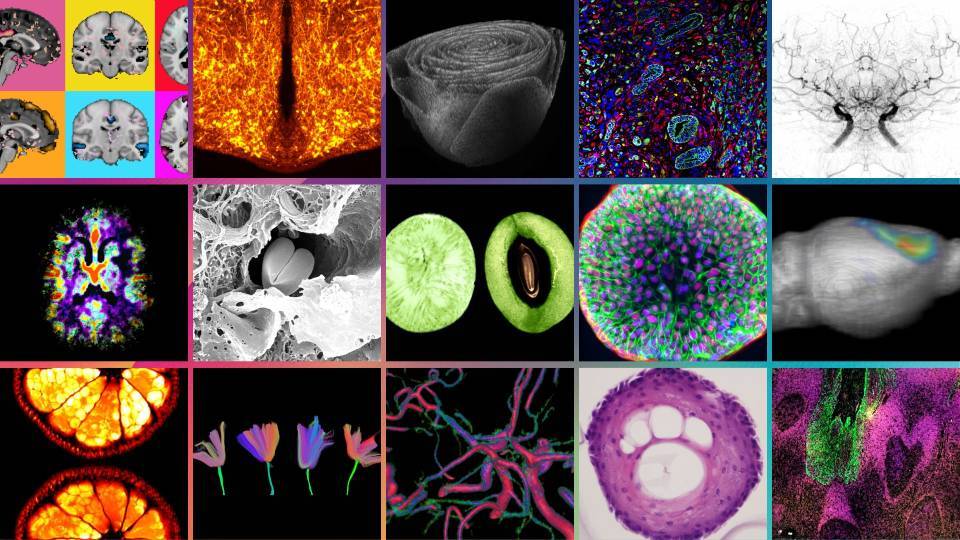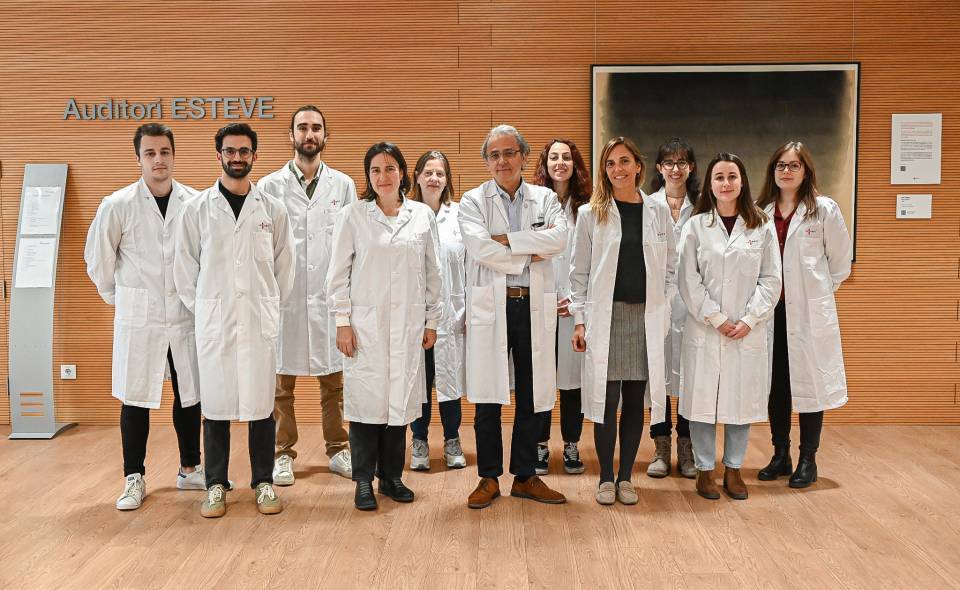The research, focused on the academic therapy ARI-0002h, offers new perspectives that could optimize future treatment and improve the selection of patients who may benefit from it.
The study was coordinated by Dr. Carlos Fernández de Larrea, haematologist at the Hospital Clínic and head of the IDIBAPS Myeloma, amyloidosis, macroglobulinemia and other gammapathies research group. Researchers from the Clínica Universidad de Navarra also participated in the study—both in terms of the sample analysis and the CAR T-cell production—along with five other Spanish hospitals: the Hospital Universitario in Salamanca, the Hospital Virgen de la Arrixaca in Murcia, the Hospital 12 de Octubre in Madrid, the Complejo Hospitalario in Santiago de Compostela, and the Hospital Virgen del Rocío in Sevilla.
Multiple myeloma is a type of cancer that affects plasma cells in the bone marrow. Although several treatments are available, many patients develop resistance, which leads to relapses and an urgent need for new therapies. This is where CAR T-cell therapies can play a fundamental role. CAR T-cell treatment reprogrammes the patient's immune cells to attack cancer.
“At our institution, an academic CAR T-cell therapy, ARI-0002h, was developed, which has shown very promising results in the first cohort of 30 patients treated with this CAR T-cell therapy”, says Carlos Fernández de Larrea.
How to determine whether myeloma responds to CART T-cell therapy
The study in Clinical Cancer Research describes the safety and efficacy results in 60 patients with refractory or relapsed multiple myeloma after at least two lines of treatment. The researchers collected detailed data from the patients, including blood and bone marrow samples before and after the infusion of the CAR T-cells.
In addition to the clinical results, various factors, including different biomarkers, were analysed to predict response and its duration after treatment with ARI-0002h.
Ninety-five percent of the patients responded to the treatment with ARI-0002h, with 58% showing complete responses. Although most developed an inflammatory condition called cytokine release syndrome, only 5% of the patients experienced it to a significant degree. On the other hand, there was practically no neurotoxicity.
In addition to corroborating the efficacy of the previous study, parameters associated with the response were identified, mainly those associated with the tumour burden of myeloma, such as soluble BCMA or the presence of extramedullary disease. Moreover, it was shown that some markers of apheresis, such as the HLA-DR marker, or the development of exhaustion markers in lymphocytes, could also be associated with the duration of the response. The persistence of ARI-0002h CAR T-cells in the patient was not associated with the prognosis, “which suggests that this factor may not be as crucial for the long-term success of the therapy as previously thought”, says Fernández de Larrea.
The results of this study suggest that ARI-0002h therapy is a promising option for patients with refractory multiple myeloma. “Being a therapy developed in an academic setting, it could offer a more accessible alternative for the treatment of these patients”, explain the researchers.
On the other hand, the identification of the response biomarkers, and their monitoring, could significantly improve patient selection and treatment personalization, better predicting who will respond favourably to the therapy and adjusting the strategies accordingly.
It is crucial to continue researching in order to identify and mitigate the biomarkers associated with poor outcomes, thus improving patient selection and the efficacy of these therapies in the future.
The development of CAR T-cell therapy at el Clínic receives fundamental support from the “la Caixa” Foundation and has also received specific funding from the Carlos III Health Institute (ISCIII), the Spanish Association Against Cancer (AECC) and the Bosch Aymerich Foundation.
Study reference:
Oliver-Caldes A, Español-Rego M, Zabaleta A, González-Calle V, Navarro-Velázquez S, Inogés S, de Cerio AL, Cabañas V, López-Muñoz N, Rodríguez-Otero P, Reguera JL, Moreno DF, Martínez-Cibrian N, López-Corral L, Pérez-Amill L, Martin-Antonio B, Rosiñol L, Cid J, Tovar N, Sáez-Peñataro J, López-Parra M, Olesti E, Guillén E, Varea S, Rodríguez-Lobato LG, Battram AM, González MS, Sánchez-Salinas A, González-Navarro A, Ortiz-Maldonado V, Delgado J, Prósper F, Juan M, Martínez-López J, Moraleda JM, Mateos MV, Urbano-Ispizua Á, Paiva B, Pascal M, Fernández de Larrea C. Biomarkers of Efficacy and Safety of the Academic BCMA-CART ARI0002h for the Treatment of Refractory Multiple Myeloma. Clin Cancer Res. 2024 May 15;30(10):2085-2096. doi: 10.1158/1078-0432.CCR-23-3759.




